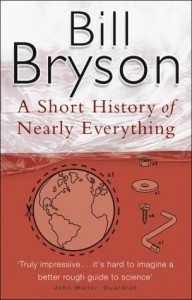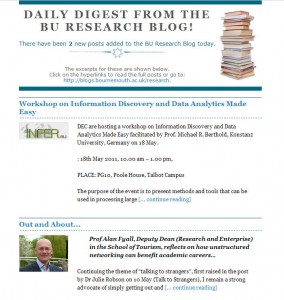
 Not necessarily! The lay summary is an extremely important part of most research bids. Most researchers think they write it well, and yet many bids fail because it is not ‘lay enough’. The topic was debated at this year’s ARMA conference (Association of Research Managers and Administrators) in bonnie Glasgow. The highlights of the session are detailed below.
Not necessarily! The lay summary is an extremely important part of most research bids. Most researchers think they write it well, and yet many bids fail because it is not ‘lay enough’. The topic was debated at this year’s ARMA conference (Association of Research Managers and Administrators) in bonnie Glasgow. The highlights of the session are detailed below.
A lay summary is used to explain complex ideas and technical and scientific terms to people who do not have a prior knowledge about the subject. A lay audience is heterogeneous (it includes the general public, patients and users of the science, politicians and other decision-makers, and researchers in different disciplines such as potential research collaborators). A lay summary is a requirement at application stage by most funding bodies, including the UK research councils.
When applying to UK research councils you are normally allowed up to 4,000 characters for your lay summary. There is no need to use all of these characters; often being concise is good for a lay audience! There are also some funding bodies that enforce a much stricter word limit, such as the British Heart Foundation who only allow up to 100 words for a lay summary.
What is the definition and purpose of a lay summary?
This very much depends on which funding body you are applying to as they all have their own definitions. For example, the Je-S Help Guide states the summary should be “written so that it will be understood by a non-specialist audience” but each of the different research councils have their own definition, such as:
EPSRC – “Using simple terms you are asked to describe your proposed research in a way that can be publicised to a general audience. It is very important that you make every effort to ensure that your summary is understandable to someone who is not an expert in your field. This is the section of your application that, if successful, EPSRC will use for publicity purposes. You should also note that the Outline panels who will review your proposal will be drawn from across EPSRC’s remit and will not necessarily have expertise in your research area.”
ESRC – “Write in plain English. Your proposal is likely to be seen by a great many people, some of whom will not be versed in your particular specialisation. Detail and specification may necessitate the use of disciplinary or technical terminology and this will be clear to peer reviewers, but the ideas you wish to convey and your reasons for doing so should be apparent to a wide audience. By the same token, do take the trouble to check spelling, grammar and punctuation. These are all part of the quality of presentation and presentation matters!
What is the story you are telling?
What is the audience?
Why does it matter?
Why now?
Why are they the best person to carry out this research?”
One of the most concise and succinct definitions is provided by Buckland et al (2007): “a brief summary of a research project or a research proposal that has been written for members of the public rather than researchers or professionals. It should be written in plain English, avoid the use of jargon and explain any technical terms that have been included”. [1]
These different definitions are very confusing! But in essence a lay summary has three main requirements:
- To paint the bigger picture
- To answer who, what, where, when, why, how?
- Be written in plain English
 Painting the bigger picture: The lay summary is your first chance to impress the reviewer! Reviewers are very busy and in the majority of cases the lay summary is the first (and sometimes the only) part of a grant application that he/she will read. It is therefore vitally important that it is interesting, easy to read and conscise. It needs to give an overview of the whole project – the background, aims and expected impact.
Painting the bigger picture: The lay summary is your first chance to impress the reviewer! Reviewers are very busy and in the majority of cases the lay summary is the first (and sometimes the only) part of a grant application that he/she will read. It is therefore vitally important that it is interesting, easy to read and conscise. It needs to give an overview of the whole project – the background, aims and expected impact.
Answer who, what, where, when, why, how?: It may sound harsh but many reviewers will read research proposals and be left asking themselves ‘so what?’. Your lay summary needs to answer this by explaining why the project is exciting, relevant and timely, and worth funding now above all of the other submitted proposals. Lay summaries are normally used by funding bodies to promote the research project so think about who is likely to read your lay summary, should your proposal be funded, and ensure you answer these ‘who, what, where, when, why and how’ questions with these various readers in mind. For example, your lay summary may be used in the following ways:
- by politicians in raising and justifying research funds from government;
- to justify public spending on research;
- to attract new collaborators such as industrial partners and researchers from different disciplines
- by press officers to promote your research to the public
 Be written in plain English: A strong lay summary will always explain any technical terms used, spell out abbreviations, and avoid using jargon. It will also be written in ‘plain English’ but what exactly does this mean?
Be written in plain English: A strong lay summary will always explain any technical terms used, spell out abbreviations, and avoid using jargon. It will also be written in ‘plain English’ but what exactly does this mean?
- Titles should be simple and clear. The European Commission’s FP7 guidance states that titles should be understandable to the non-specialist in the field. The best format for a title is to give a short statement followed by a colon and then a brief explanation.
 Simple analogies should be used to help the reader make sense of complex ideas. Arthritis Research UK suggest a good example of this is Bill Bryson’s book ‘A Short History of Nearly Everything’ [2] which uses analogies of everyday objects and activities to explain complex scientific concepts. Whilst simple analogies might mean that you lose detail and may not be perfect then strengthen your proposal if they make your ideas clearer to the reader.
Simple analogies should be used to help the reader make sense of complex ideas. Arthritis Research UK suggest a good example of this is Bill Bryson’s book ‘A Short History of Nearly Everything’ [2] which uses analogies of everyday objects and activities to explain complex scientific concepts. Whilst simple analogies might mean that you lose detail and may not be perfect then strengthen your proposal if they make your ideas clearer to the reader.- Clear layout – avoid using English phrases (such as ‘the lion’s share’) as these may not be understood by the reader. Avoid using double negatives as they cloud meaning. Order the paragraphs logically – start with the problem your research aims to solve so the reader can identify with this first. Break up blocks of text with bullet points, shorter paragraphs, etc. It is good practice to match the layout with the layout of your objectives. Do not use jargon (unless it is defined and explained in the summary) and ensure all abbreviations are spelt out.
Media / public engagement training courses: The UK research councils offer media/public communications training courses. These are highly recommended within the sector and offer good value for money. Most councils allow you to include the costs in your research proposal providing you justify it in your case for support, otherwise the training is free to funded students or grant holders. For example:
BU’s internal peer review scheme (RPRS): Support for writing and strengthening research proposals (including writing a good lay summary) is available via the internal Research Proposal Review Service (RPRS). Visit the RPRS webpage for further information!
References:
[1] Buckland, S. et al (2007) Public Information Pack. How to get actively involved in NHS, public health and social care research. INVOLVE Public Information Pack 4 available at: http://www.invo.org.uk/pdfs/pip44jargonbuster.pdf
[2] Bryson, B (2004) A Short History of Nearly Everything, Black Swan: London
 Yet in the main they were ignored…and it was clear why. They were at odds with each other, they would have been difficult to translate into policy and they lacked recommendations for future action. Compare this with the submissions from Sector Skills Councils, trade associations and other collectives and it was clear where we were going wrong. These submissions tended to speak with one voice, included quantitative as well as qualitative evidence and made clear recommendations for future policy. Some of this material was lifted verbatim by the DCMS and inserted into the final published policy. These groups ‘inculcated the discourse’ to great effect.
Yet in the main they were ignored…and it was clear why. They were at odds with each other, they would have been difficult to translate into policy and they lacked recommendations for future action. Compare this with the submissions from Sector Skills Councils, trade associations and other collectives and it was clear where we were going wrong. These submissions tended to speak with one voice, included quantitative as well as qualitative evidence and made clear recommendations for future policy. Some of this material was lifted verbatim by the DCMS and inserted into the final published policy. These groups ‘inculcated the discourse’ to great effect. Dr Richard Shipway
Dr Richard Shipway
 In my opinion, an active involvement with reviewing (be it on behalf of either a research council or an academic journal) is important for several reasons: firstly, it enhances our own continued professional development; secondly it provides opportunities to be associated with particular research councils or academic journals; thirdly, an active involvement is an important addition to your CV; and fourthly, reviewing can provide opportunities to view new research before anybody else and enables us to remain up to date with emerging research trends and directions. As such, if asked to review work for a research council or an academic journal, my advice to colleagues would be to acknowledge and accept the significant time commitment involved with this process, but to grasp the opportunity for the benefits it can potentially provide.
In my opinion, an active involvement with reviewing (be it on behalf of either a research council or an academic journal) is important for several reasons: firstly, it enhances our own continued professional development; secondly it provides opportunities to be associated with particular research councils or academic journals; thirdly, an active involvement is an important addition to your CV; and fourthly, reviewing can provide opportunities to view new research before anybody else and enables us to remain up to date with emerging research trends and directions. As such, if asked to review work for a research council or an academic journal, my advice to colleagues would be to acknowledge and accept the significant time commitment involved with this process, but to grasp the opportunity for the benefits it can potentially provide. The European Commission is always recruiting academic reviewers. See our
The European Commission is always recruiting academic reviewers. See our  If you’d like to share any of the posts on the Blog with networks, colleagues, friends, the public, you can now do this quickly and easily on Twitter via our new TweetMeme plugin.
If you’d like to share any of the posts on the Blog with networks, colleagues, friends, the public, you can now do this quickly and easily on Twitter via our new TweetMeme plugin.

 Not necessarily! The lay summary is an extremely important part of most research bids. Most researchers think they write it well, and yet many bids fail because it is not ‘lay enough’. The topic was debated at this year’s ARMA conference (Association of Research Managers and Administrators) in bonnie Glasgow. The highlights of the session are detailed below.
Not necessarily! The lay summary is an extremely important part of most research bids. Most researchers think they write it well, and yet many bids fail because it is not ‘lay enough’. The topic was debated at this year’s ARMA conference (Association of Research Managers and Administrators) in bonnie Glasgow. The highlights of the session are detailed below. Painting the bigger picture: The lay summary is your first chance to impress the reviewer! Reviewers are very busy and in the majority of cases the lay summary is the first (and sometimes the only) part of a grant application that he/she will read. It is therefore vitally important that it is interesting, easy to read and conscise. It needs to give an overview of the whole project – the background, aims and expected impact.
Painting the bigger picture: The lay summary is your first chance to impress the reviewer! Reviewers are very busy and in the majority of cases the lay summary is the first (and sometimes the only) part of a grant application that he/she will read. It is therefore vitally important that it is interesting, easy to read and conscise. It needs to give an overview of the whole project – the background, aims and expected impact. Be written in plain English: A strong lay summary will always explain any technical terms used, spell out abbreviations, and avoid using jargon. It will also be written in ‘plain English’ but what exactly does this mean?
Be written in plain English: A strong lay summary will always explain any technical terms used, spell out abbreviations, and avoid using jargon. It will also be written in ‘plain English’ but what exactly does this mean? Simple analogies should be used to help the reader make sense of complex ideas.
Simple analogies should be used to help the reader make sense of complex ideas. 
 I assume I was invited because I am just coming to the end of an
I assume I was invited because I am just coming to the end of an  There have been a wide range of important studies that have used covert methods, that have collected data from people who do not know they are being studied at the time, who would not give permission or, had permission been sought, where the data may have been dubious or biased. Researchers justify their actions by stating the need to gain access to inaccessible groups, to illuminate important social issues, and to uncover the unpalatable. Famous examples include, of course, Rosenhan’s[1] study of the ways in which mental illness may be attributed by location and situation (
There have been a wide range of important studies that have used covert methods, that have collected data from people who do not know they are being studied at the time, who would not give permission or, had permission been sought, where the data may have been dubious or biased. Researchers justify their actions by stating the need to gain access to inaccessible groups, to illuminate important social issues, and to uncover the unpalatable. Famous examples include, of course, Rosenhan’s[1] study of the ways in which mental illness may be attributed by location and situation ( Where do our research ideas come from in the social sciences? Often from lectures and dialogue within these with students, from supervision, and observations we make in everyday life. That we have collected initial soundings and thoughts from these settings and situations, which has not been scrutinised or completed without informed consent is not questioned: it would be ridiculous to assume we needed informed consent to undertake our daily practices!
Where do our research ideas come from in the social sciences? Often from lectures and dialogue within these with students, from supervision, and observations we make in everyday life. That we have collected initial soundings and thoughts from these settings and situations, which has not been scrutinised or completed without informed consent is not questioned: it would be ridiculous to assume we needed informed consent to undertake our daily practices! Matthew’s previous blog post (
Matthew’s previous blog post (

 As of today the BU Research Blog has attracted 200 subscribers!
As of today the BU Research Blog has attracted 200 subscribers!

 One of the main elements of quality control in academic publishing is the process of peer review of articles. Editors of scientific journals will send manuscripts submitted to their journal out to a number of reviewers who are experts on, for example, the research topic, the method, theoretical approach or the geographical in the manuscript.
One of the main elements of quality control in academic publishing is the process of peer review of articles. Editors of scientific journals will send manuscripts submitted to their journal out to a number of reviewers who are experts on, for example, the research topic, the method, theoretical approach or the geographical in the manuscript.  Those of us who are actively involved in publishing about academic research are regularly asked to review articles for journals in their field. I usually am invited to review a paper twice or three times a month and I try to do at least one a month. The reasons for reviewing papers are plentiful. First, I believe in the essence of peer-reviewing as a system to maintain scientific quality. Secondly, you get to read some interesting research findings before anybody else, or the flip side, you get some pretty awful papers which makes you realise your own work quite good. Thirdly, it is something expected of all-round academic, as task you can add to your CV, etc. Fourthly, if I want my submitted papers to receive proper attention in the review process I feel I must to the same for someone else. Lastly, I get a chance to see ‘the other side’ as I am also an editor.
Those of us who are actively involved in publishing about academic research are regularly asked to review articles for journals in their field. I usually am invited to review a paper twice or three times a month and I try to do at least one a month. The reasons for reviewing papers are plentiful. First, I believe in the essence of peer-reviewing as a system to maintain scientific quality. Secondly, you get to read some interesting research findings before anybody else, or the flip side, you get some pretty awful papers which makes you realise your own work quite good. Thirdly, it is something expected of all-round academic, as task you can add to your CV, etc. Fourthly, if I want my submitted papers to receive proper attention in the review process I feel I must to the same for someone else. Lastly, I get a chance to see ‘the other side’ as I am also an editor. Well certainly the EU Commission thinks so. In fact it’s so important that the EU Commission says that member states (e.g. the UK) should “ensure that all public research organisations define knowledge transfer as a strategic mission” and that they should “support the development of knowledge transfer capacity and skills in public research organisations, as well as measures to raise the awareness and skills of students – in particular in the area of science and technology – regarding intellectual property, knowledge transfer and entrepreneurship”.1
Well certainly the EU Commission thinks so. In fact it’s so important that the EU Commission says that member states (e.g. the UK) should “ensure that all public research organisations define knowledge transfer as a strategic mission” and that they should “support the development of knowledge transfer capacity and skills in public research organisations, as well as measures to raise the awareness and skills of students – in particular in the area of science and technology – regarding intellectual property, knowledge transfer and entrepreneurship”.1 We’re interested to know what you like about the blog, which posts you find useful and what you’d like to see more of.
We’re interested to know what you like about the blog, which posts you find useful and what you’d like to see more of. Subscribers to the Blog will today have noticed our
Subscribers to the Blog will today have noticed our 

 Could good networking then be the secret to being a successful academic? On reflection it’s a good way to identify new ideas, new ways to transfer knowledge to a wider audience and new partners for bids Maybe talking to strangers, or at least new people, is good advice after all.
Could good networking then be the secret to being a successful academic? On reflection it’s a good way to identify new ideas, new ways to transfer knowledge to a wider audience and new partners for bids Maybe talking to strangers, or at least new people, is good advice after all.










 Dr. Ashraf cited on ‘Modest Fashion’ in The Guardian
Dr. Ashraf cited on ‘Modest Fashion’ in The Guardian NIHR-funded research launches website
NIHR-funded research launches website Academics write for newspaper in Nepal
Academics write for newspaper in Nepal New paper published on disability in women & girls
New paper published on disability in women & girls Global Consortium for Public Health Research 2025
Global Consortium for Public Health Research 2025 MSCA Postdoctoral Fellowships 2025 Call
MSCA Postdoctoral Fellowships 2025 Call ERC Advanced Grant 2025 Webinar
ERC Advanced Grant 2025 Webinar Horizon Europe Work Programme 2025 Published
Horizon Europe Work Programme 2025 Published Horizon Europe 2025 Work Programme pre-Published
Horizon Europe 2025 Work Programme pre-Published Update on UKRO services
Update on UKRO services European research project exploring use of ‘virtual twins’ to better manage metabolic associated fatty liver disease
European research project exploring use of ‘virtual twins’ to better manage metabolic associated fatty liver disease